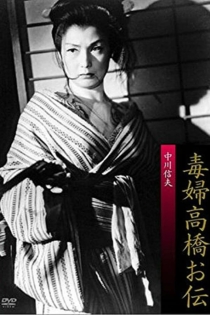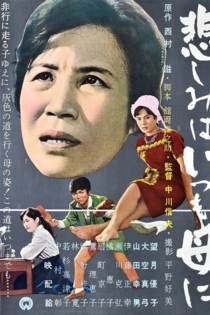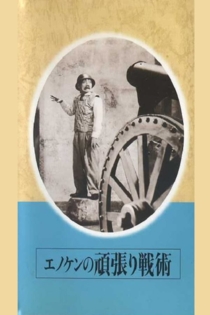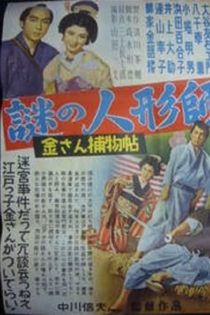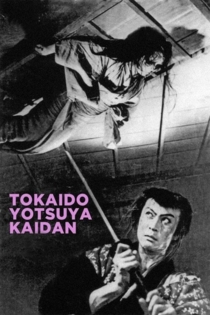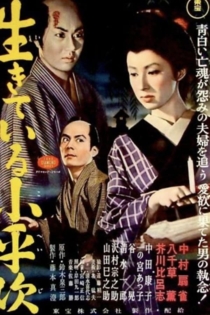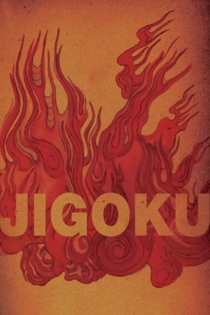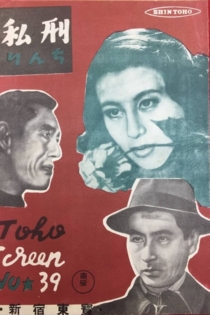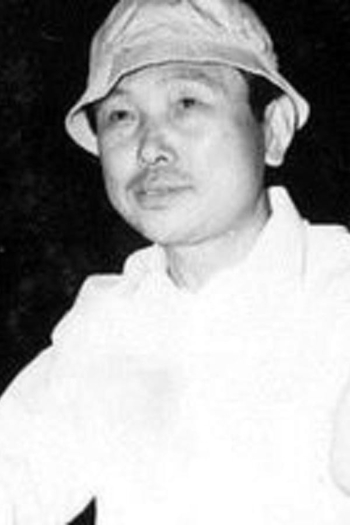
Nobuo Nakagawa
1905 - 1984Born in Kyoto, Nakagawa was early on influenced by proletarian literature and wrote amateur film reviews for the Kinema Junpō film magazine. He joined Makino Film Productions in 1929 as an assistant director and worked under Masahiro Makino. When that studio went bankrupt in 1932, he switched to Utaemon Ichikawa's production company and made his debut as a director in 1934 with Yumiya Hachiman Ken. He later moved to Toho, where he made comedies starring Enoken and even documentaries during the war. It was at Shintoho after the war that he became known for his cinematic adaptations of Japanese Kaidan, especially his masterful version of Tokaido Yotsuya Kaidan in 1959.
To Western audiences, his most famous film is Jigoku (1960), which he also co-wrote. The film was released on DVD by the Criterion Collection in 2006.
He also filmed many Kaidan for television. His last film was 1982's Kaidan: Ikiteiru Koheiji.
旗本喧嘩鷹
Nobuo Nakagawa
Utaemon Ichikawa, Yumiko Hasegawa
1716, Yoshimune becomes the 8th Shogun as high Shogunate officials are attacked. While the government tries to keep these incidents under wraps, they must take any means possible to get to the bottom of this mystery and find out who is behind them.
Samurai Hawk

八百万石に挑む男
Nobuo Nakagawa
Utaemon Ichikawa, Sō Yamamura
A story of an orphan boy who wanted the love of parents so badly, another orphan sincerely pitied him to the point he gives his secret birthright as an illegitimate son to a Shogun as a "gift of hope" to the sad boy. As the orphan boy grew up, his loving heart became bitter and he saw the opportunity to take advantage of this birthright with the help of a man who wanted to use this orphan's desire to be loved, for seizing power in the shogunate by using the imposter. Many obstacles to hurdle along the way of deception, however, will they succeed or will he be exposed?
The Man Who Challenged 8,000,000-Koku
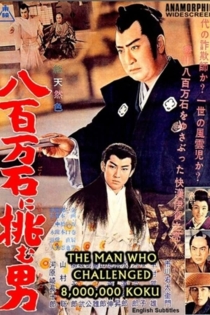
妖艶毒婦伝 人斬りお勝
Nobuo Nakagawa
Junko Miyazono, Reiko Ônobuta
This film focuses on Okatsu; the adopted daughter of a master swordsman. She is a master with a sword herself and her talents far overshadow that of her brother, and real child of the man who adopted her. Her brother unfortunately has a gambling habit, and it plunges the family into trouble when he loses a lot of money in a crooked dice game. After releasing he is unable to pay the debt he owes; the blame is shouldered by the father, who is killed, leading Okatsu on a path of revenge.
Quick-draw Okatsu

番場の忠太郎
Nobuo Nakagawa
Tomisaburō Wakayama, Yôko Katsuragi
Based on the play ”Mabuta no haha” by famed author Shin Hasegawa, this is the first major starring role for Tomisaburo Wakayama. This heartfelt story concerns a wandering gambler from Banba by the name of Chutaro. Set during the Tenpo Period, Chutaro runs afoul of Boss Sukegoro of Iioka. Pursued by vengeance seeking swordsmen, Chutaro displays his phenomenal martial art skills. Abandoned as a child, he seeks to find his long lost mother, while at the same time fighting off numerous attacks by Iioka’s men.
Chutaro of Banba
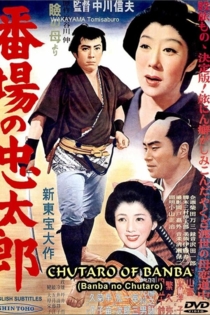
毒婦高橋お伝
Nobuo Nakagawa
Katsuko Wakasugi, Jūzaburō Akechi
In 1870's Tokyo, Den steals to support the daughter of her first marriage and her consumptive second husband. She falls in love with a young policeman, but is coerced into becoming the mistress of and procurer for a vice boss.
A Wicked Woman
